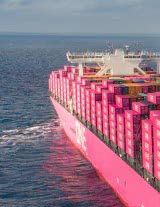|
|
|
TRANSPORTS ROUTIERS
|
|
|
|
Milan
|
|
|
|
|
|
|
|
TRANSPORT MARITIME
|
|
|
|
Lysaker / Oslo
|
|
|
|
|
|
| | | | |
|
|
TRANSPORT MARITIME
|
|
|
|
Helsinki
|
|
|
|
|
|
| | | | | | | |
|
TRANSPORT PAR CHEMIN DE FER
|
|
|
|
Padoue
|
|
|
|
|
| |
| |
|
| LES DÉPARTS |
|
|
|

|
|

|
|
|
|
|
|
|
TRANSPORT MARITIME
|
|
|
|
La Spezia / Gênes
|
|
|
|
|
| |
| |
|
TRANSPORT INTERMODAL
|
|
|
|
Melzo
|
|
|
|
|
| |
| | | | | | |
 |
|
TRANSPORT MARITIME
|
|
|
|
Singapour
|
|
|
|
|
|
|
| | |
|
TRANSPORT PAR CHEMIN DE FER
|
|
|
|
Vienne
|
|
|
|
|
|
| |
|
|
TRANSPORT MARITIME
|
|
|
|
Luxamburgo
|
|
|
|
|
|
| |
|
ACCIDENTS
|
|
|
|
San'a' /Portsmouth
|
|
|
|
|
| |
| | |
|
|
TRANSPORT MARITIME
|
|
|
|
Naples
|
|
|
|
|
|
| | |
|
|
FORMATION
|
|
|
|
Castel Volturno
|
|
|
|
|
|
| | | | |
|
|
PLATEFORMES LOGISTIQUES
|
|
|
|
Bianconèse de Fontevivo
|
|
|
|
|
|
| | | | | | |
|
|
FORUM
|
des opérateurs maritimes
et de la logistique
|
|
|
|
|
|
CONFITARMA
|
|
|
|
Roma, 27 ottobre 2023
|
|
| |
| | | |
|
ENTREPRISES
|
|
|
|
Naples / Shanghai
|
|
|
|
|
| |
| | | | | | | | | | | | | | | | |
|
SERVICES MARITIMES
|
|
|
|
Anvers / Hong Kong
|
|
|
|
|
|
| | |
|